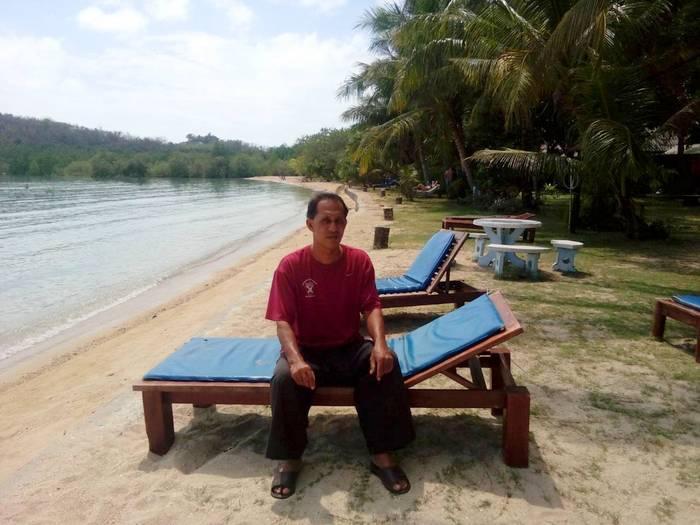Opinion: Climbing: a balancing act

Maitree Chankarn, 50, is the owner of Baan Than Khao Bungalow on Koh Yao Noi. He is originally from Koh Panyi, Phang Nga. In addition to the bungalows, which saw a tourism boom in the last five years, he runs a number of other small businesses on the island.
Here, he asks that the rock climbing walls in Koh Yao Noi be reopened, as he laments the economic damage the ban on rock climbing has had on him and others in the area.
PHUKET: Since I’ve been here, nobody has died rock climbing. In fact there are rarely any injuries – maybe one or two a year. I don’t understand why the government has suddenly banned the activity. It seems weird, as it has been a popular activity on the island for a long time.
However, it is an official order, so there is nothing I can do. I recognize that the national park chief is worried about tourists’ safety, but what about the impact his decision has on locals and the growth of tourism on the island? What about our income?
I do not run a climbing business on the island. However, I have indirectly been impacted by the walls being closed, and I don’t think I’m the only one.
We have not lost a huge amount of income, as other types of tourists still come to Koh Yao Noi. Nonetheless, we don’t want to lose any part of it if we can help it.
The government might see that only a small percentage of the total number of tourists who visit the island are climbers, so banning the activity will ensure safety and not have a significant economic impact. However, this isn’t true.
Climbers comprise 35 per cent of our bungalow occupancy. Most importantly, climbers tend to have longer stays than other types of tourists, putting more money directly into the local economy.
A generic tourist will only stay two or three nights, while a climber will stay at least one or two weeks – think about how much more money we can earn from their stay on the island. This impacts hotels, restaurants, bars and other tourist related businesses. Just because they are here to climb doesn’t mean they don’t participate in other activities on their rest days. Everyone can benefit from these tourists, especially because they stay so long.
The other major benefit of climbing tourists is that they come during both low and high seasons. Having a tourist market that can help support the economy during the low season is very important, even if it is a small one. This is especially important for small family-run businesses.
Of course, it is not my place to say if climbing is good or bad. Like everything, it can have positive and negative impacts. On one hand locals make money and tourists enjoy their stay at Koh Yao Noi; on the other hand there are some risks associated with it.
Given that the park chief is concerned about the risks, I believe it would be advantageous to look at implementing more safety measures or to have experts present at the walls to ensure climbers’ safety. Making all the companies register with the park and adhere to certain safety standards is reasonable.
If the government does its best to make sure that climbers are safe, nobody will blame officials.
The ban is, without a doubt, destroying a mutually beneficial opportunity for both tourists and locals. And though we want climbing back, we do not want to see tourists die either. The government simply needs to find a way to allow climbers back, while ensuring their safety.
— Kongleaphy Keam
Latest Thailand News
Follow The Thaiger on Google News:


























